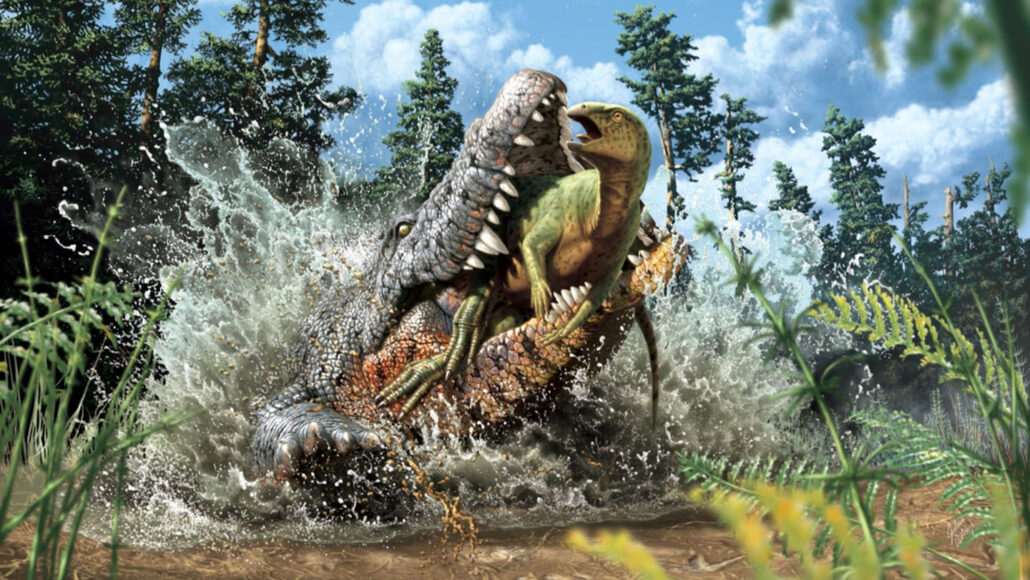Fossils show a crocodile ancestor dined on a young dinosaur
The new evidence confirms what scientists have long suspected

A crocodile ancestor that lived about 100 million years ago had a juvenile herbivorous dinosaur for its last meal, as shown in this artist’s illustration.
For the first time, scientists have found indisputable evidence that an ancient crocodile ancestor chowed down on a dinosaur.
Preserved within a fossilized crocodyliform, a member of a newfound species dubbed Confractosuchus sauroktonos, are the partially digested remains of a juvenile bipedal ornithopod, paleontologist Matt White of the University of New England in Australia and colleagues report February 10 in Gondwana Research.
Crocodyliforms include modern species like crocodiles and alligators as well as their ancestors. Those ancestors lived alongside dinosaurs for millions of years, and previous evidence, such as bite marks on fossilized dinosaur bones, has hinted that croc ancestors dined on dinosaurs when the opportunity arose (SN: 10/24/01). But fossils with actual preserved stomach contents are extremely rare (SN: 8/10/20). In fact, C. sauroktonos is only the second extinct crocodyliform fossil with identifiable stomach contents — and the first to reveal a meal of dinosaur.
C. sauroktonos was about 2.5 meters long — slightly smaller than an adult female American alligator — and lived between 104 million and 92.5 million years ago in what is now Queensland, Australia. Similarities between the creature’s skull features and those of living and extinct crocodyliforms suggest that it didn’t just eat dinos. C. sauroktonos probably cast a wide net when it came to seeking out prey.

As for the grisly contents of its gut — including a few ribs and bits of leg and arm bone — they represent the first ornithopod ever found in Queensland’s Winton rock formation. The herbivorous dino may also be a new species, although it’s difficult to tell from these few pieces, the team says.